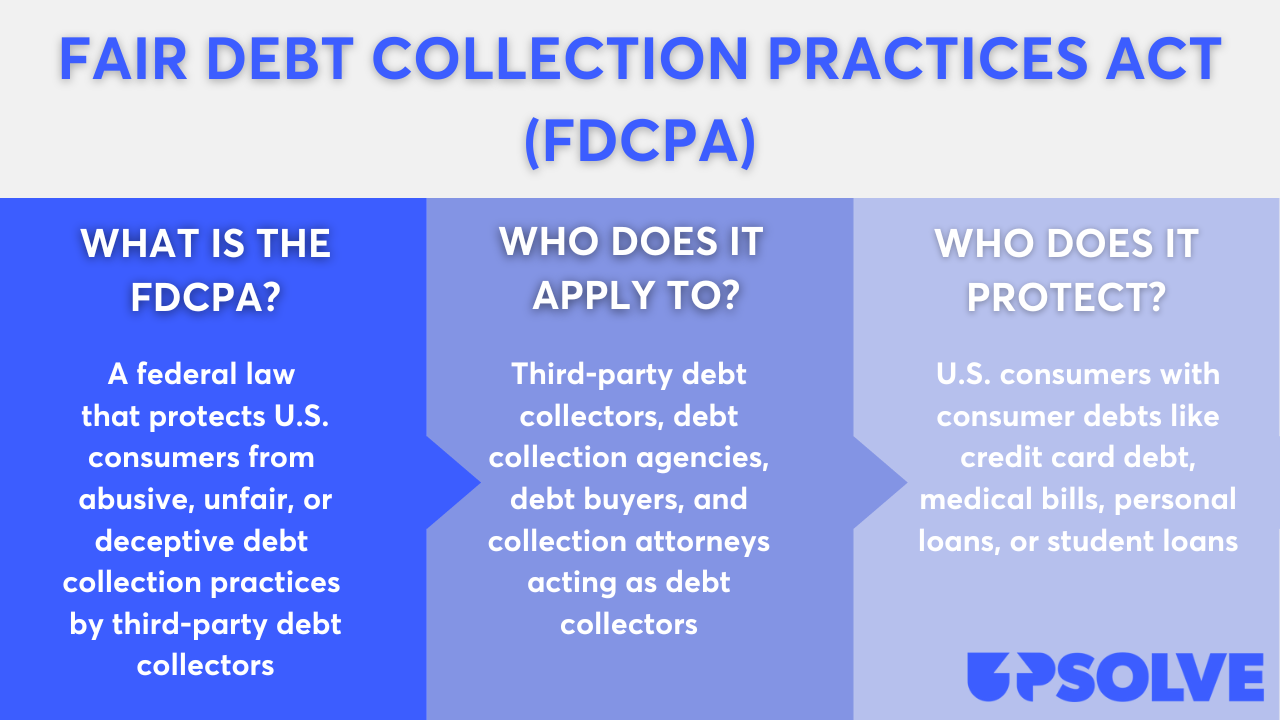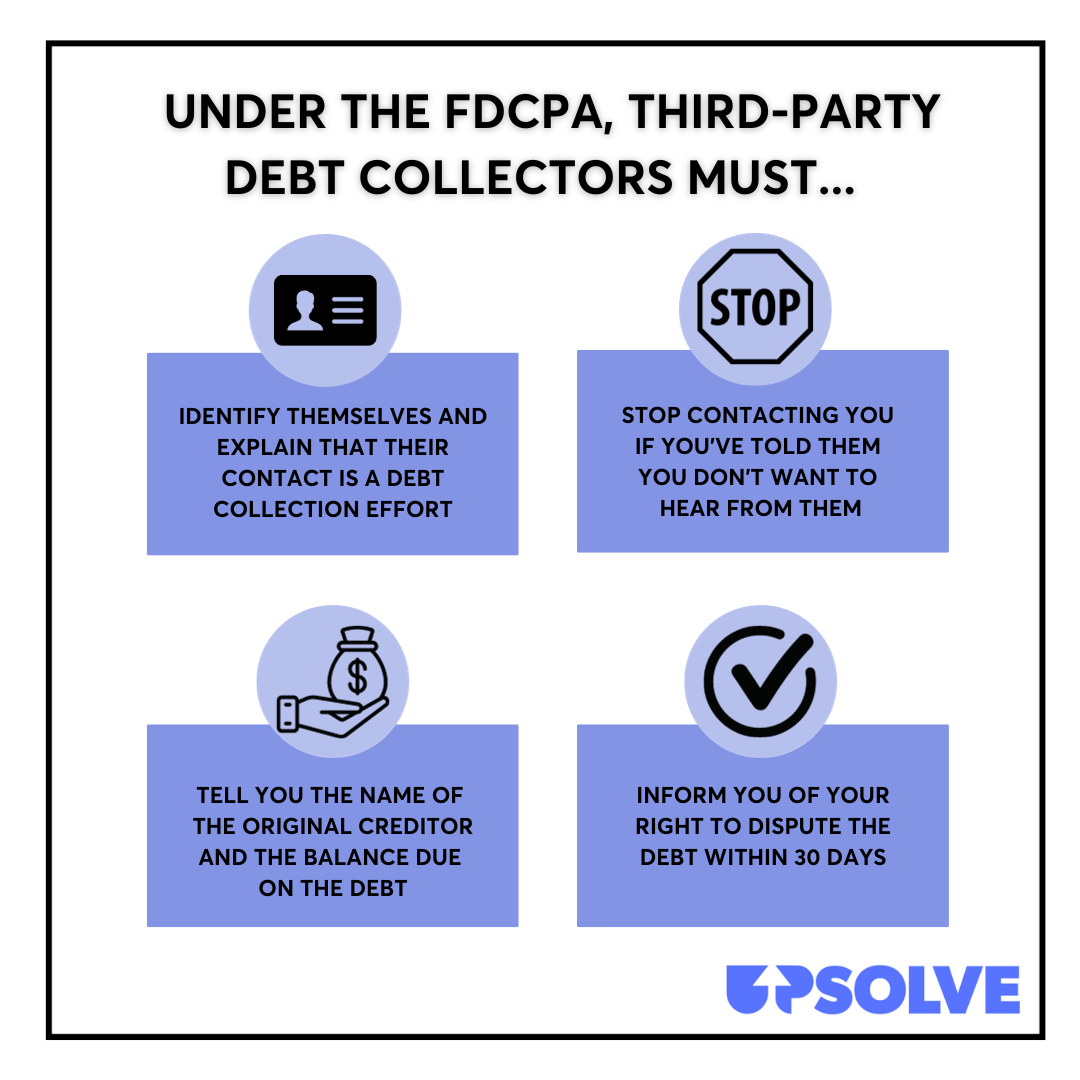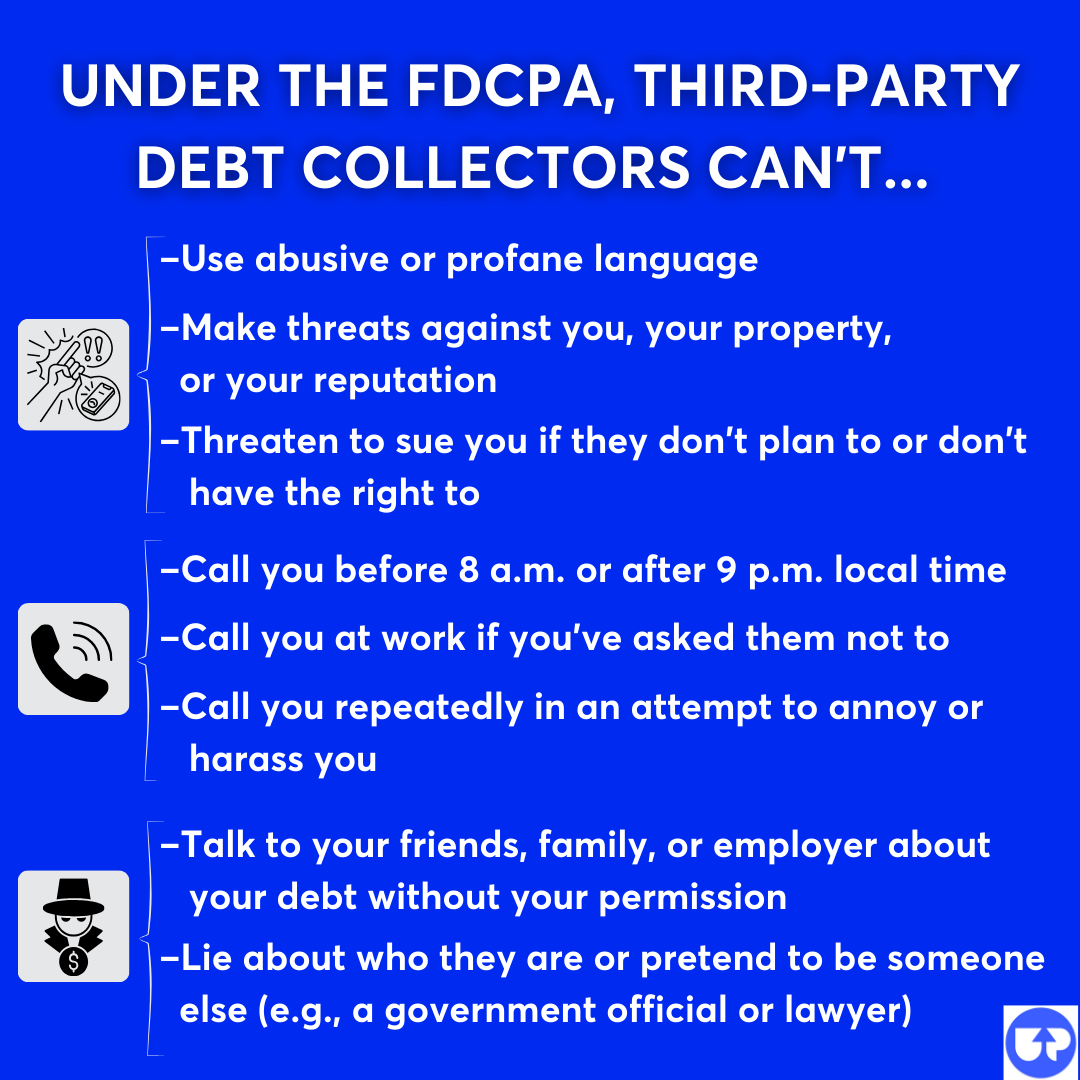Your Guide to Missouri’s Debt Collection Laws
Upsolve is a nonprofit that helps you eliminate your debt with our free bankruptcy filing tool. Think TurboTax for bankruptcy. You could be debt-free in as little as 4 months. Featured in Forbes 4x and funded by institutions like Harvard University — so we’ll never ask you for a credit card. See if you qualify →
Missouri residents are best protected against debt collector misconduct by the federal Fair Debt Collection Practices Act (FDCPA). The FDCPA protects consumers against debt collector harassment, deception, and other unfair practices. In Missouri, the statute of limitations for open accounts — which often includes credit card debt — is five years. The statute of limitations for debts backed by written contracts is 10 years. This often includes medical bills.
Written by Mae Koppes. Legally reviewed by Jonathan Petts
Updated January 22, 2026
Table of Contents
- What Are the Debt Collection Laws in Missouri?
- What Can You Do if a Debt Collector Breaks the Law in Missouri?
- What Is the Statute of Limitations for Debt Collection in Missouri?
- What Can Debt Collectors Do To Collect Debt in Missouri?
- How Do You Know if a Debt Collector in Missouri Is Legit?
- Need Help With Debt Relief? Here Are Some Options
What Are the Debt Collection Laws in Missouri?
Missouri doesn’t have a specific state law that focuses only on debt collection. Because of that, most protections for Missouri residents come from the federal Fair Debt Collection Practices Act (FDCPA), which sets rules for how debt collectors can behave.
⚖️ That said, the Missouri Merchandising Practices Act (MMPA) may apply in certain debt collection situations, especially if the debt is connected to the sale of goods or services. For example, in a notable Missouri Supreme Court case, the court ruled that the MMPA applied to deceptive debt collection practices related to dental services.
Still, the FDCPA is likely your best line of defense against debt collector misconduct in Missouri. So it’s important to understand what this law covers and how it can help you.
How Does the FDCPA Protect Missouri Consumers?
The FDCPA is a federal law that protects consumers from abusive, misleading, and unfair behavior by third-party debt collectors.
Here’s an overview of the law and who it applies to:

Under the FDCPA, debt collectors have to follow specific guidelines. These are some of the main ones:

Debt collectors also have limits. Here’s what they’re not allowed to do under the FDCPA:

What Can You Do if a Debt Collector Breaks the Law in Missouri?
If a debt collector breaks a state or federal law while trying to collect from you, you can file a complaint against them or take legal action to recover damages.
📋 Many people start by submitting a complaint to the Consumer Financial Protection Bureau (CFPB). This federal agency enforces the FDCPA and can investigate and penalize debt collectors who violate it.
🏦 If your issue involves a bank, mortgage broker, or lender, you may also want to file a complaint with the Missouri Division of Finance.
In addition to filing a complaint, you have the right to sue a debt collector who breaks the law.
For FDCPA violations, you can file a lawsuit in federal court. If you win, you may receive compensation to cover any financial harm the collector caused (called actual damages), plus up to $1,000 in additional compensation. You may also have your legal fees and court costs covered.
If the MMPA applies to your situation, you can sue in the Missouri Circuit Court. If you win, you could receive actual damages, extra money to penalize the collector (called punitive damages), and possibly a court order requiring them to stop the behavior. You may also have your legal fees and court costs covered.
What Is the Statute of Limitations for Debt Collection in Missouri?
In Missouri, how long a debt collector or creditor has to sue you depends on the type of debt. This time limit is known as the statute of limitations:
Oral agreements and open accounts (like credit cards): five years
Written contracts (this usually includes medical bills, personal loans, or signed agreements): 10 years
Contracts for the sale of goods (often includes store financing or vehicle purchases): four years
⚠️ If a collector contacts you about an old debt, be careful about what you say. In some cases, making a payment or even acknowledging the debt can restart the clock. Before you agree to anything, ask the collector to verify the debt and check whether the statute of limitations has passed.
What Can Debt Collectors Do To Collect Debt in Missouri?
Debt collectors in Missouri are required to follow the federal Fair Debt Collection Practices Act (FDCPA), but they’re still allowed to try to collect a debt through phone calls, letters, or even by filing a lawsuit.
If you receive court papers about a debt called a summons and complaint, it’s important to respond! Ignoring the lawsuit can lead to a default judgment, which means the collector automatically wins. From there, they may be able to take further steps to collect the debt, like:
Wage garnishment, when part of your paycheck is taken to repay the debt. In Missouri, garnishment is generally limited to 25% of your disposable earnings.
A bank levy, which allows them to withdraw money directly from your bank account.
A lien on your property, which can affect your ability to sell or refinance.
📑 Getting sued can feel overwhelming, but Upsolve has a free step-by-step guide that walks you through how to respond to a debt collection lawsuit in Missouri so you can move forward with confidence.
🤝 If you’d rather not go it alone but can’t afford an attorney, you can also quickly file an answer using our trusted partner, SoloSuit, for a small fee. Solo has helped hundreds of thousands of people respond to lawsuits and offers a money-back guarantee.
Upsolve may earn a referral fee if you choose to use Solo. We only partner with organizations we trust to support people navigating debt.
What Happens if You Fall Behind On a Car Loan in Missouri?
🚗 If you miss payments on your car loan, the lender or debt collector may try to repossess your vehicle. They don't need a court order to do this in Missouri, but they are required to send you a notice of default first. This notice explains what you owe and gives you a chance to catch up before repossession.
Once your car is repossessed, the lender can sell it to recover the money you owe. If the sale doesn’t cover the full balance of your loan, you may still owe the remaining amount (called a deficiency balance).
How Do You Know if a Debt Collector in Missouri Is Legit?
In Missouri, many types of lenders and debt collectors must be licensed by the Missouri Division of Finance. This includes payday lenders, car title loan companies, installment lenders, and retail credit providers. The state regulates these companies to help ensure they follow both state and federal consumer protection laws.
If a debt collector contacts you and you’re unsure whether they’re legitimate, you can check with the Missouri Division of Finance to see if they’re licensed. The Division also accepts complaints if you believe a company is breaking the law or using abusive or misleading tactics.
Not every debt collector needs a license in Missouri, but checking for one is a helpful first step in spotting potential red flags.
Need Help With Debt Relief? Here Are Some Options
Tackling debt can be challenging, but you're not alone. You have several options to manage or even eliminate your debt.
💬 A great place to start is to meet with a nonprofit credit counselor. This is a free service designed to help you understand your financial situation and explore options for managing or reducing your debt. A credit counselor can offer personalized guidance, whether that means creating a debt management plan, looking into consolidation, or considering other strategies.
If you’re ready to wipe out your debt and start fresh, you might consider filing Chapter 7 bankruptcy. Upsolve has helped over 21,000 people erase nearly $1 billion in debt since 2017 — and our service is completely free. Ready to take the first step? See if you’re eligible to use our free tool.
Free and Low-Cost Legal Help in Missouri
If you’re dealing with a debt collection lawsuit or a difficult debt collector but can’t afford a private attorney, you may be able to get free help from a legal aid organization in Missouri. These nonprofits support low-income individuals with debt issues, bankruptcy, housing problems, and more.
Here are a few statewide and regional programs that may be able to help:
Legal Services of Eastern Missouri (St. Louis and surrounding counties): helps with housing, debt collection, and other civil legal issues
Legal Aid of Western Missouri (Kansas City and western Missouri): offers support with bankruptcy, consumer credit problems, and debt collection defense
Legal Services of Southern Missouri (Springfield and southern Missouri): assists with consumer law, housing, and public benefits
Mid-Missouri Legal Services (Columbia, Jefferson City, and central Missouri): provides legal help for debt, housing, and family law issues